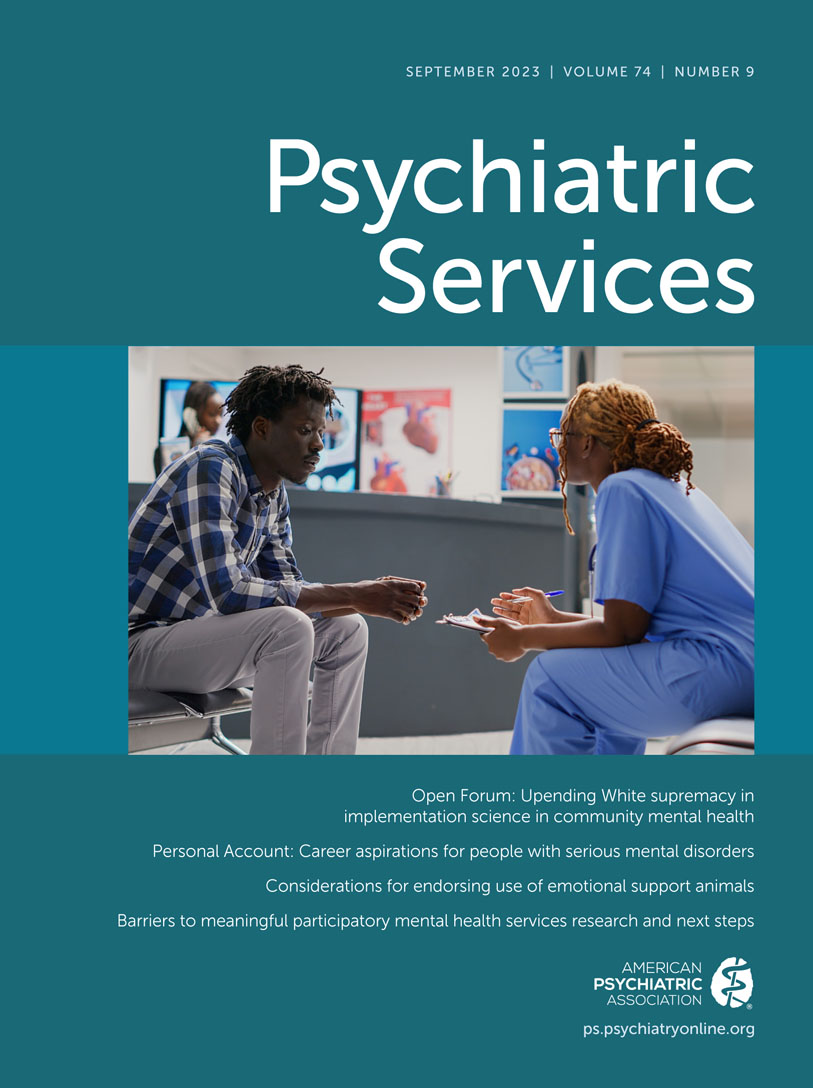Barriers to Meaningful Participatory Mental Health Services Research and Priority Next Steps: Findings From a National Survey
Abstract
Objective:
A growing consensus has emerged regarding the importance of stakeholder involvement in mental health services research. To identify barriers to and the extent of stakeholder involvement in participatory research, the authors undertook a mixed-methods study of researchers and community members who reported participation in such research.
Methods:
Eight consultative focus groups were conducted with diverse groups of stakeholders in mental health services research (N=51 unique participants, mostly service users), followed by a survey of service users, family members, community providers, and researchers (N=98) with participatory research experience. Focus groups helped identify facilitators and barriers to meaningful research collaboration, which were operationalized in the national survey. Participants were also asked about high-priority next steps.
Results:
The barrier most strongly endorsed as a large or very large problem in the field was lack of funding for stakeholder-led mental health services research (76%), followed by lack of researcher training in participatory methods (74%) and insufficiently diverse backgrounds among stakeholders (69%). The two most frequently identified high-priority next steps were ensuring training and continuing education for researchers and stakeholders (33%) and authentically centering lived experience and reducing tokenism in research (26%).
Conclusions:
These findings suggest a need for increased attention to and investment in the development, implementation, and sustainment of participatory methods that prioritize collaboration with direct stakeholders, particularly service users, in U.S. mental health services research. The findings also underscore the presence and potentially important role of researchers who dually identify as service users and actively contribute a broader orientation from the service user–survivor movement.
Access content
To read the fulltext, please use one of the options below to sign in or purchase access.- Personal login
- Institutional Login
- Sign in via OpenAthens
- Register for access
-
Please login/register if you wish to pair your device and check access availability.
Not a subscriber?
PsychiatryOnline subscription options offer access to the DSM-5 library, books, journals, CME, and patient resources. This all-in-one virtual library provides psychiatrists and mental health professionals with key resources for diagnosis, treatment, research, and professional development.
Need more help? PsychiatryOnline Customer Service may be reached by emailing [email protected] or by calling 800-368-5777 (in the U.S.) or 703-907-7322 (outside the U.S.).



